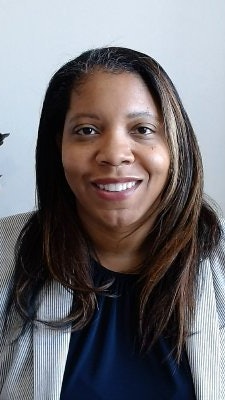The American Association of Medical Colleges (AAMC), a nonprofit focused on the academic medicine community, recently released the third report in a series about competencies for building diversity, equity, and inclusion (DEI) in medical education and patient care.
“AAMC has been committed to advancing DEI for many years, and the country’s racial justice reawakening just made this work even more relevant and timely,” said Kamilah Weems, director of strategic initiatives and partnerships in medical education at AAMC. “We’ve been hearing from learners and educators that there is a need for DEI efforts in medical schools and across health care.”  Kamilah Weems
Kamilah Weems
Dr. Joseph Betancourt, senior vice president of equity and community health at Massachusetts General Hospital, noted that the evidence is “undoubtedly clear” that bringing individuals of historically underrepresented backgrounds into medicine “remains a significant problem.” Studies have also shown that patients get a stronger quality of care when their health care professionals are more diverse.
“Diversity, equity, and inclusion is a crucial element in any educational environment,” added Dr. David Henderson, associate dean of multicultural and community affairs as well as professor and chair in the department of family medicine at the University of Connecticut. “And I think it is particularly important in medical education because the purpose is to produce a workforce that meets the health care needs of a population—and that population is growing increasingly diverse.”
The AAMC report breaks down each competency—Diversity, Equity, and Inclusion—into three tiers that align with the different phases of a physician’s career path.
The first tier tackles competencies for someone entering residency or recently graduating medical school. The second centers on physicians starting independent practice or recently graduating from a residency. And the final section targets experienced faculty physicians who are responsible for educating students or residents.
“The competencies are organized in such a way that we’re really asking the physician to start with themselves,” added Weems, who highlighted the report’s strategies for addressing biases in patient care. “We all have biases, and so how do we work to mitigate that bias? Regardless of how the patient is presenting in front of them, how do they understand that person’s demographic data and intersecting identities? And how do they check their own personal bias to provide culturally relevant care with cultural humility?”
The AAMC’s report’s competencies aim to help educators design or adapt curricula to support learners and teachers along their DEI journeys. According to AAMC, one use could be launching more robust DEI discussions with health care professionals.
Henderson added that the report’s call for antiracist content is key to medical education, noting the field's history of discrimination against patients as well as providers of different races. He also said that these competencies importantly recognize intersectionality.
“We carry within us more than one identity,” said Henderson. “And different aspects of our identity become salient in different environments. Having that awareness in educational environments is very important to promote inclusion—because none of us is just one identity.”
Betancourt agreed that such DEI work like the AAMC report is a critical step. To him, the question now is how institutions and educators will meaningfully put this into action. But he said that he is hopeful given heightened national conversations on this urgent subject.
“We’ve been trying to give increasing attention to issues of DEI for the better part of several decades now—and what has been missing, I believe, is the kind of real rigor of execution,” he said. “By that I mean we’ve been heavy on aspiration and light on execution. In every one of those areas of diversity, equity, and inclusion, we need to bring rigor with real strategies, timelines, milestones, and accountability. The last two years have created the environment and culture for us to once and for all tackle this like we never have before.”
Rebecca Kelliher can be reached at [email protected].
















